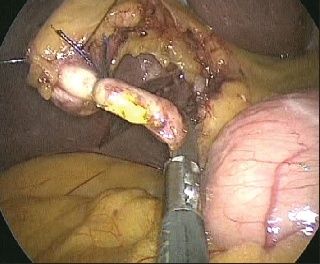Instruments that were free from insulation failure on the first-pass evaluation were retested after each surgery for any total of 10 procedures. Failures were detected in 80% of robotic instruments however in only 36% of laparoscopic instruments. The outcomes were similar when instruments were tested at 20 W and 26.4 kV, 20 W and 1 kV, and 20 W and 4.2 kV. Insulation failures were more common in the proximal 1 / 2 of the shaft of laparoscopic instruments, appearing as small defects in the plastic sheath. Within the robotic surgery tools, however, they were more common within the distal 1 / 2 of the shaft, that's, closer to the surgical field.
Robotic instruments with a metallic tip had a higher rate of insulation failure, as did bipolar versus monopolar instruments. The research was published early online on April 8, 2011, in the American Journal of Obstetrics and Gynecology. “In our practice, when an insulation failure is detected, it's immediately repaired by recoating the plastic sheath. The entire process of recoating could repair both proximal and distal defects but manipulation from the shaft during surgical procedures or washing process could break the original plastic sheath in the proximal part of the laparoscopic instrument, because it is the weakest portion.
Laparoscopic and robotic surgeries are increasingly becoming popular because of their numerous benefits, including minimal invasiveness, faster recovery, and less pain for the patient. However, the use of these instruments requires specialized care to prevent potential damage and maintain their functionality. One crucial aspect of this care is insulation care. Insulation is the protection of the instruments' insulation material from damage, which can occur during handling, sterilization, or use. Insulation care is essential in laparoscopic and robotic surgery, as damage to the insulation material can lead to injuries to the patient and the surgeon. This essay will highlight the importance of insulation care with laparoscopic and robotic instruments and outline the strategies that can be used to ensure proper insulation care.
Importance of Insulation Care in Laparoscopic and Robotic Instruments
- Patient Safety
The insulation material on laparoscopic and robotic instruments is designed to protect the patient from electrical burns, which can occur during surgery. Insulation care is essential in maintaining the integrity of this material, preventing any damage that could lead to electrical burns during the surgical procedure.
- Surgeon Safety
In addition to patient safety, insulation care is also essential in protecting the surgeon from electrical burns. The insulation material on the instruments protects the surgeon from any electrical current that may be conducted through the instrument during use. Damage to the insulation material can expose the surgeon to the electrical current, leading to potential injuries.
- Instrument Functionality
Proper insulation care is essential in maintaining the functionality of the instruments. Insulation damage can affect the instruments' performance, leading to less effective and less efficient surgery. In some cases, insulation damage can render the instrument unusable, leading to unnecessary costs for repair or replacement.
Insulation Care Strategies
- Proper Handling
Proper handling of laparoscopic and robotic instruments is critical in maintaining the integrity of the insulation material. Instruments should be handled with care, and any damage or wear on the insulation material should be addressed immediately. Surgeons and operating room staff should be trained on proper handling techniques to prevent any damage to the insulation material.
- Sterilization Techniques
The sterilization process can also impact the integrity of the insulation material. The sterilization process can cause wear and tear on the insulation material, leading to potential damage during use. Proper sterilization techniques should be followed, and any damage to the insulation material should be addressed immediately.
- Regular Inspections
Regular inspections of laparoscopic and robotic instruments can help identify any damage or wear on the insulation material. Inspections can be performed before and after each surgical procedure, as well as during routine maintenance checks. Any damage to the insulation material should be addressed immediately to prevent any potential injuries to the patient or the surgeon.
- Instrument Maintenance
Proper maintenance of laparoscopic and robotic instruments is essential in maintaining their functionality and protecting the insulation material. Instruments should be cleaned and inspected regularly to identify any damage or wear on the insulation material. Damaged insulation material should be repaired or replaced immediately to prevent any potential injuries to the patient or the surgeon.
Conclusion
Insulation care is a critical aspect of laparoscopic and robotic surgery, as damage to the insulation material can lead to injuries to the patient and the surgeon. Proper handling, sterilization, inspections, and maintenance of the instruments are essential in maintaining the integrity of the insulation material and ensuring safe and effective surgery. Surgeons and operating room staff should be trained on proper insulation care techniques to prevent any potential damage to the insulation material. The importance of insulation care cannot be overstated, as it is crucial in maintaining patient and surgeon safety and ensuring the instruments' functionality.






